Dhyan Chand is regarded as one of the greatest hockey players in history and a legend. Prolific Dhyan Chand, a star of the Indian hockey squad that dominated the sport in the years preceding World War II, was crucial to India's three straight Olympic gold medals in 1928, 1932, and 1936.
Dhyan Chand was dubbed "Hockey Wizard" and "The Magician" due to his extraordinary game skill and mastery of ball control.
Early Life and Background
Dhyan Chand, widely regarded as one of the greatest hockey players in history, was born on August 29, 1905, in Allahabad, India. He came from a Rajput family, with his father, Sameshwar Singh, serving in the British Indian Army, where he also played hockey. This early exposure to the sport within a military environment would later influence Chand’s career. He had two brothers, Mool Singh and Roop Singh, the latter of whom also became a renowned hockey player.
Due to his father's frequent transfers, the family moved frequently, which disrupted Chand's education, limiting him to just six years of formal schooling. The family eventually settled in Jhansi, Uttar Pradesh. Chand’s early years were not heavily focused on sports, although he had a fondness for wrestling. He once mentioned that before joining the army, he had no significant involvement in hockey, apart from occasional casual games with friends in Jhansi.
Educational Background
Despite the interruptions to his education, Chand pursued higher studies at Aligarh Muslim University and later graduated from Victoria College, Gwalior, in 1932. His father’s military service provided the family with a small piece of land, where they built a home. The military influence in his family played a pivotal role in shaping Chand's future, leading him to join the Indian Army in 1922.
It was within the army that Chand’s hockey skills were honed. The structured environment of military life, combined with access to facilities and a culture of discipline, allowed Chand to develop his natural talent. His potential as a hockey player began to surface during this period, setting the stage for his future accomplishments.
Career
Dhyan Chand’s name is synonymous with excellence in field hockey. His career is highlighted by his remarkable goal-scoring ability and his unprecedented achievements at the Olympic Games. Chand first gained prominence during a tour of New Zealand with the Indian Army hockey team in 1926. His performance on this tour showcased his exceptional skills and marked the beginning of his illustrious international career.
Chand's Olympic journey began in 1928 at the Amsterdam Games, where he played a crucial role in securing India's first gold medal in hockey. The Indian team dominated the tournament, with Chand’s goal-scoring prowess being a key factor in their success. He continued to excel in the 1932 Los Angeles Olympic Games, where India once again claimed the gold medal, further solidifying their dominance in the sport.

Image Source: Twitter
By the time of the 1936 Berlin Olympic Games, Chand was at the peak of his career. As captain of the Indian team, he led them to a resounding victory, defeating Germany 8–1 in the final. Chand’s performance was nothing short of spectacular, as he scored three goals in the final match. His ability to control the ball and his precise dribbling earned him the nickname "The Wizard."
Throughout his international career, Dhyan Chand scored over 400 goals, a record that remains unmatched in the history of field hockey. His contribution to India's success on the global stage was immense, and he played a pivotal role in establishing India as a dominant force in hockey during the early 20th century.
Amsterdam 1928 Olympic Games
The 1928 Olympic Games in Amsterdam were a turning point in Dhyan Chand's career and for Indian hockey. These Games, held from May 17 to August 12, 1928, marked the first time India participated in the Olympics as an independent team in hockey. The Indian team, with Dhyan Chand as a key player, displayed extraordinary skill and coordination on the field. Their performance was a revelation to the world, and they won the gold medal without conceding a single goal throughout the tournament.
The 1928 Games were also notable for other reasons. It was the first time that track-and-field and gymnastics events were included for women, despite significant opposition from figures like Pierre de Coubertin and the Vatican. The Games saw the return of Germany to Olympic competition and the introduction of the Olympic flame, which has since become a symbol of the Games.
Los Angeles 1932 Olympic Games
The Los Angeles Olympic Games in 1932, held from July 30 to August 14, presented new challenges due to the global economic depression. Despite the reduced participation, with only about 1,300 athletes from 37 countries, the Games were a success. The Indian hockey team, once again led by Dhyan Chand, dominated the field, winning their second consecutive gold medal.
The 1932 Games also introduced the first Olympic Village, providing athletes with a dedicated space to stay, socialize, and prepare for their events. The innovations in infrastructure, such as the installation of a fast track at the Los Angeles Memorial Coliseum, led to the setting of 10 world records in running events.
Dhyan Chand’s role in India’s victory was critical. During the world tour leading up to the Olympics, he scored an incredible 133 goals, showcasing his unmatched ability to lead his team to victory. The Los Angeles Games further cemented Chand's status as a hockey legend.
Berlin 1936 Olympic Games
The 1936 Olympic Games in Berlin, held from August 1 to 16, took place in a politically charged atmosphere. Adolf Hitler, who had risen to power in Germany, sought to use the Games as a platform for Nazi propaganda. Despite the tense environment, the Indian hockey team, under Chand's captaincy, delivered a masterful performance.
The final match against Germany, where India triumphed 8–1, is considered one of the most significant moments in Olympic history. Dhyan Chand's leadership and skill were on full display as he scored three of the eight goals. The victory was not just a triumph of skill but also a powerful statement against the backdrop of Nazi propaganda.
Chand’s influence extended beyond the hockey field. His sportsmanship and dedication to the game earned him respect worldwide. He played his final international match in 1948 and retired from the army with the rank of major in 1956.
Medals and Records
Dhyan Chand’s legacy is enduring, and his contributions to hockey have been celebrated in various ways. His birthday, August 29, is commemorated as National Sports Day in India, a day when the President of India presents the country’s top sports awards, including the Major Dhyan Chand Khel Ratna, the Arjuna Award, and the Dronacharya Award.
In 1995, a nine-foot statue of Dhyan Chand was unveiled at the National Stadium in Delhi, which was later renamed the Dhyan Chand National Stadium in his honour. The Dhyan Chand Award, India’s highest award for lifetime achievement in sports, was instituted in 2002 and continues to be awarded annually.
Chand’s impact was not limited to India. An Astroturf hockey pitch at the Indian Gymkhana Club in London is named after him, and the Government of India issued a commemorative postage stamp in his honour. He is the only Indian hockey player to be so honoured.
In 2014, Dhyan Chand was among the nominees for India’s highest civilian award, the Bharat Ratna. Although the award was eventually given to cricketer Sachin Tendulkar and scientist C.N.R. Rao, the nomination itself was a recognition of Chand's monumental contributions to Indian sports.
The impact of Dhyan Chand’s life and career extends into education as well. A lesson on his achievements, written by author K. Arumugam, was included in the Class 9 textbooks by NCERT in 2002–2003, ensuring that future generations would learn about the "Wizard" of hockey.
Also Read: India's Top 10 Sporting Moments Post Independence


Disclaimer
Possible11 is a sports news and analysis platform designed purely for entertainment and educational purposes. All match previews, player insights, and team analyses are based on publicly available information and expert opinions. We do not promote or support betting, gambling, or real-money gaming in any form. Users are encouraged to enjoy our content responsibly and use it for informational purposes only.


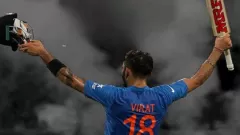
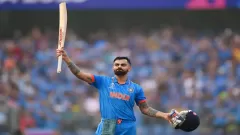








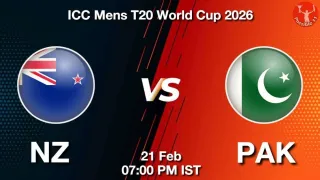
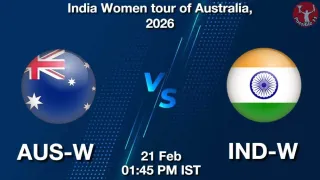

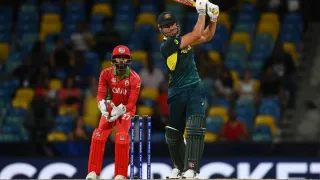
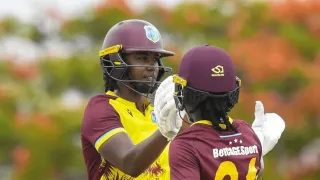
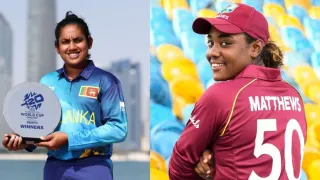

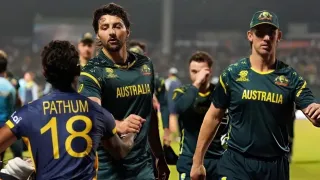
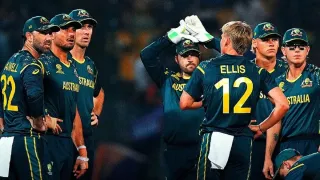
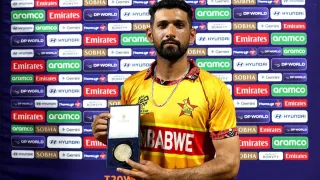
Give Your Feedback